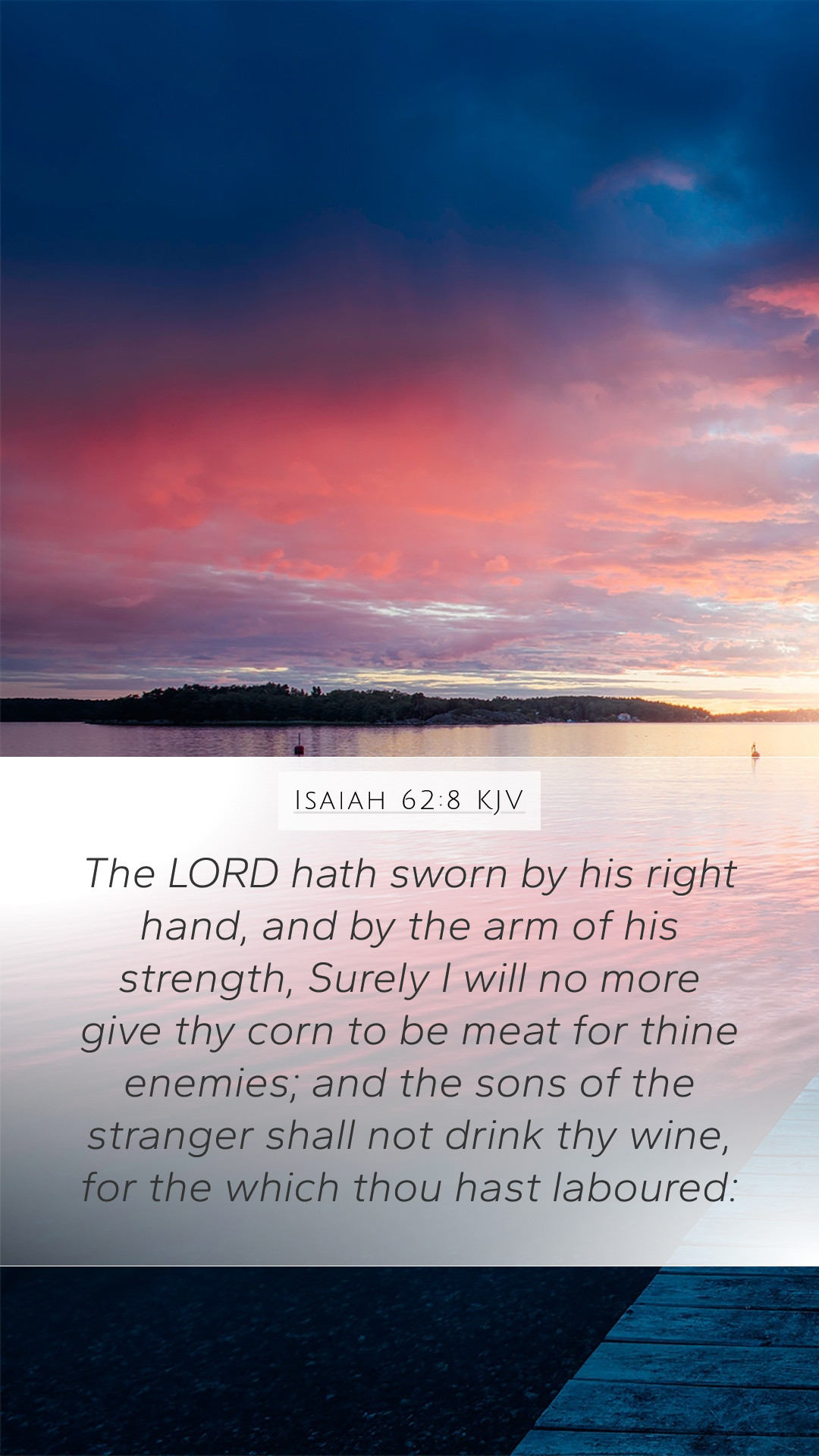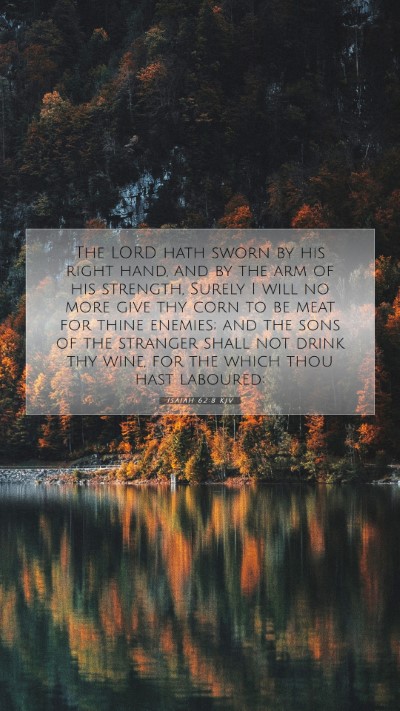Understanding Isaiah 62:8
Isaiah 62:8 states, "The LORD has sworn by His right hand and by His strong arm, 'I will never again give your grain as food for your enemies; And foreigners will not drink your new wine for which you have labored.' This verse is significant, offering profound insights into God's promises and the security He provides for His people. Through a synthesis of commentaries from Matthew Henry, Albert Barnes, and Adam Clarke, we can explore the deeper meanings embedded in this scripture.
Contextual Background
This passage comes within a larger prophetic discourse concerning the restoration of Israel. Understanding the historical and cultural context is essential for drawing accurate Bible verse interpretations. Isaiah was addressing a people who had faced severe oppression and exile, yet this promise heralds a time of restoration and abundance.
Divine Assurance
Isaiah’s text reassures Israel of God's commitment. Matthew Henry emphasized the notion that God’s swearing indicates a serious and unwavering promise. This use of divine oaths serves to highlight the certainty of God's future blessings.
The Right Hand and Strong Arm
God swears by His right hand and strong arm, metaphors signifying His power and authority. Albert Barnes points out that the right hand symbolizes strength and favor, reinforcing that God’s intervention will be unyielding and powerful.
Restoration from Oppression
The promise includes the reversal of economic exploitation. Adam Clarke notes that previously, Israel's grain and wine were taken by foreign oppressors. God’s declaration ensures that His people will no longer endure such injustices. The shift from oppression to abundance illustrates God’s restorative justice.
Symbolism in the Food Supply
The mention of grain and wine carries significant symbolism throughout Bible study materials. Grain often represents sustenance, while wine symbolizes joy and celebration. This verse encapsulates not just physical nourishment but also the restoration of communal joy and prosperity.
Divine Intent and Human Response
While Isaiah proclaims God's promise of restoration, it subtly implies the necessity for Israel’s response to divine grace. As reflected in Bible study guides, the faithfulness of the people is crucial in realizing God’s promises. Through obedience and trust in God, Israel can expect to thrive.
Application to Daily Life
This verse invites believers today to reflect on the assurance of divine provision. The meaning of Bible verses goes beyond historical context and encourages personal application. Understanding God's commitment can empower individuals to trust Him amidst life's challenges.
Cross-References
- Joel 2:19 - God's promise of abundance and restoration.
- Isaiah 25:6-9 - A prophetic vision of God's future blessings.
- Jeremiah 31:12-14 - The joy and satisfaction that God will provide.
- Deuteronomy 28:5 - Blessings tied to obedience to God’s commands.
- Psalm 126:5-6 - The notion of reaping joy after sorrow.
Conclusion
In summary, Isaiah 62:8 speaks volumes about God's unyielding justice and provision. Through the lens of various commentaries, we see a multi-faceted understanding of restoration, divine authority, and the significance of human response. For those studying the Bible, this verse offers vital insight into the character of God and His unwavering promises. Engaging in Bible study insights on such passages enhances spiritual growth and understanding of Scripture.


